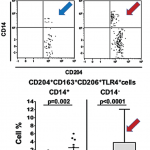
HelloRF Zcooll / shutterstock.com
A confluence of advances in knowledge and technology is closing in on the day when therapies for patients with rheumatoid arthritis (RA) may be specifically targeted to the precise variant and stage of disease.
“Precision medicine is in the future, and not the distant future but more in the immediate future,” says Harris R. Perlman, PhD, chief of rheumatology, Department of Medicine, Northwestern University Feinberg School of Medicine, Northwestern, Ill. “I do believe we will be able to really define treatments for patients.”
For Dr. Perlman, the ability to precisely tailor treatment for patients with RA should be no different than what is already being achieved in oncology. Identification of biomarkers to help predict an individual patient’s sensitivity or resistance to a particular therapy is the future of medicine, and as in oncology, Dr. Perlman sees this as the hopeful future for patients with rheumatologic conditions, such as RA.
As in oncology, targeted treatment starts with looking at the tissue where disease is active. Oncologists biopsy tumors to find out what is going on, says Dr. Perlman, whereas rheumatologists, for many years, have relied on blood analysis to try to determine disease progression and treatment effectiveness for such diseases as RA and have not directly examined the tissue source of disease.
As knowledge about the tissues and cells involved with RA has emerged and new technologies to study these tissues have proved possible, rheumatologists are now, similar to oncologists, going directly to the tissue source to better understand the precise disease mechanisms of RA and how to better target therapies.
As in oncology, targeted treatment starts with looking at the tissue where disease is active.
Tissue Source: Synovial Biopsies
Building on research showing the importance of synovial macrophages in the pathogenesis of RA and responsiveness to treatments, Perlman and colleagues undertook a multicenter study to better understand how these cells actually work in RA. In particular, the study looked at the feasibility of using ultrasound-guided technology to collect synovial biopsies from patients with RA for histologic analysis and genetic profiling.

Dr. Perlman
Although ultrasound-guided technology to collect synovial biopsies from patients with RA has been used successfully in Europe for nearly six years, this is the first study in the U.S. to use this technology for synovial biopsy of an affected joint in a patient with RA.
The multicenter study was conducted by a consortium of six academic rheumatology groups who formed a network called the Rheumatoid Arthritis Synovial Tissue Network (REASON). All members in the consortium were trained in minimally invasive ultrasound-guided synovial biopsy techniques.


